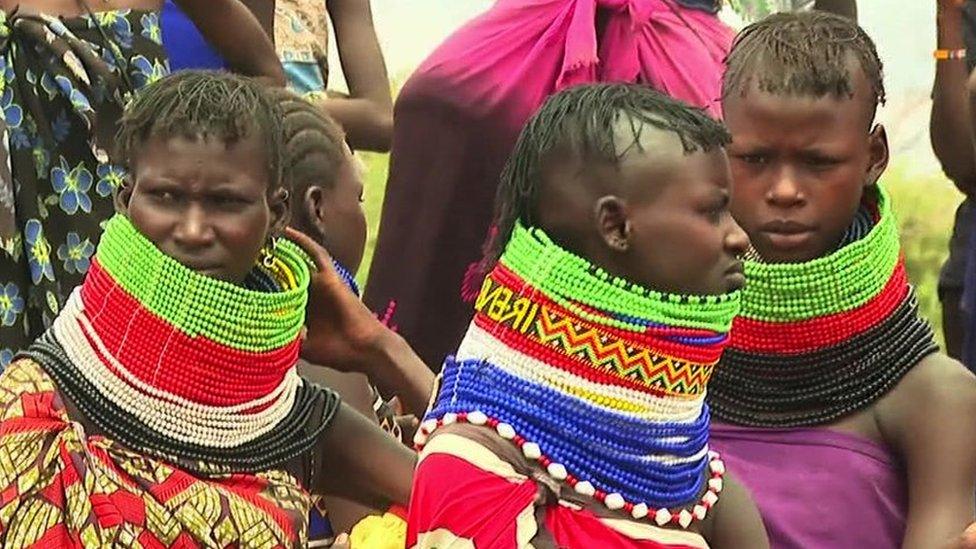Nigeria Boko Haram crisis: The women walking miles to save their children's lives
- Published
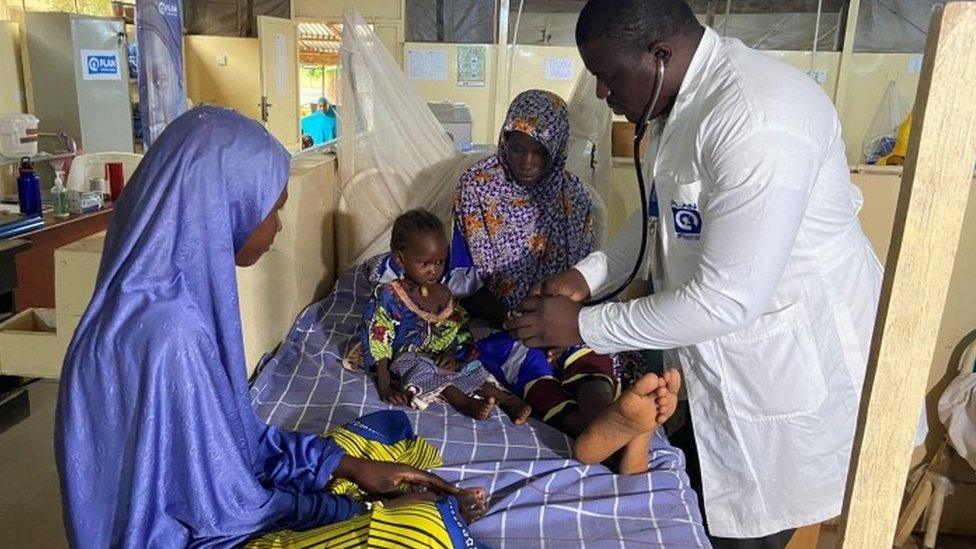
Fati Usman's son lies on a hospital bed in north-eastern Nigeria, looking almost lifeless.
He has difficulty breathing and looks extremely emaciated. A fly perches on his gaunt cheek.
From his size, you would think he is about two years old. But his mother says he is actually five.
He is just one of several million people caught up in a massive humanitarian crisis that an Islamist-led insurgency has caused in north-east Nigeria, leaving families in desperate need of food and medical care.
Dwindling funds are to blame for people's hunger, say aid workers, as Nigeria's government relies on support from aid agencies and the UN who in turn are more focused on crises in Ukraine and elsewhere.
Camps for internally displaced people (IDPs) are a last resort for millions of vulnerable Nigerians, yet Borno state, one of the worst affected, decided to close all such camps last year - labelling them slums and paying $200 (£175) to each family forced to leave.
And when it comes to government funding in the wider north-east, the malnutrition crisis comes second to fighting the region's insurgents.
Aid workers predict that an estimated 1.74 million children under the age of five could suffer from acute malnutrition in north-east Nigeria in 2022 - a 20% increase from the previous year - and 5,000 could die in the next two months.
Ms Usman says her son caught measles, followed by diarrhoea.
"I got some medicines to give to him, but his condition didn't improve. For 37 days he has been having diarrhoea."
As his health deteriorated, she rushed him to the hospital in Damaturu, the main city in Yobe state in north-eastern Nigeria.
"I brought him here two days ago," she says.
Five of her children had already died before this crisis - he is one of four who are still alive.
The 34-year-old mother is worn out and traumatised.
She fled attacks by militant Islamist group Boko Haram in the small town of Maino in Yobe, and moved into a camp for internally displaced people (IDP) five years ago.
"We couldn't even take our belongings, not even food," Ms Usman says.
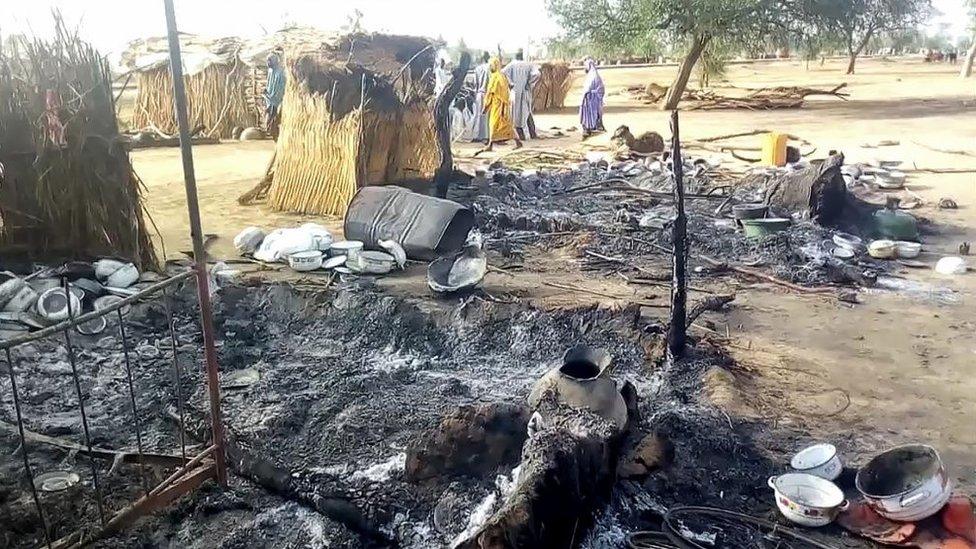
The security forces have failed to end the insurgency
The spike in malnutrition has been worsened by outbreaks of disease including cholera, and disruption to farming because of attacks by militants.
Ms Usman's husband works as a Muslim cleric, but he does not live with the family.
She tries to earn a living by sometimes helping neighbours sew their torn clothes in exchange for food. But the neighbours are also victims of the insurgency and have fled their homes, depending mainly on handouts from aid agencies and the government.
With plenty of mouths to feed, there are not enough food supplies to sustain the children and many become sick.
"This is the epicentre, so most of the cases that come here are severe ones," Dr Japhet Udokwu, the coordinator of the centre, tells the BBC.
Like many doctors and humanitarians, he fears a disaster. Dr Udokwu is working around the clock, admitting at least 40 severely malnourished children every week for treatment.
According to him, some families travelled more than 100km (62 miles) from remote communities where there was no access to medical care. Many of them had lived in IDP camps in Borno state's capital, Maiduguri, which have closed and are now unable to get enough food for their children, because they could not farm for fear of attacks.
Now is a critical moment, because the lean harvesting season is at its peak and there has been an uptick in the number of children brought in since the start of the year. As a result this facility - and others like it - are overwhelmed.
Dr Udokwu tells me his team has just finished administering treatment to a child who was rushed in a few hours earlier.
"The child is unconscious as a result of several days of passing loose stool, so we had to resuscitate him," he says.
"We actually have a lot of severe cases coming with hypoglycaemia, shock, and the like in this facility."
The facility is one of the few stabilisation centres that the BBC gained access to in some of the hard-to-reach locations in the north-east, where aid workers are battling to save the lives of hundreds of children.
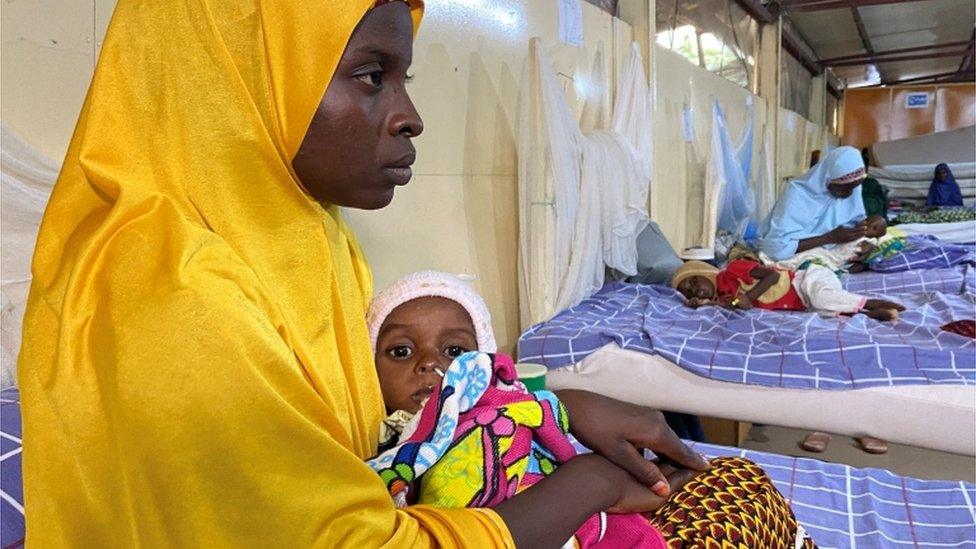
Aid workers fear that thousands of children could die
In another stabilisation facility in the commercial hub of Bama in Borno state, healthcare workers are also racing against time to cope with the mounting number of cases of children suffering severe acute malnutrition.
There, 25-year-old Fatima Bukar says she lost three children to malnutrition and walked 30km, carrying her two remaining children to the camp.
The children are among 22 patients in a 16-bed ward at the health centre in Bama.
Her four-year-old daughter, who lies on her side with swollen cheeks, cries intermittently whenever her mother turns to care for the one-year-old, emaciated-looking child in her arms.
Opposite Ms Bukar, another child cries as her mother tries to turn her around and make her lie on her back. Most of her skin looks burnt, all the way up to her face.
This is the result of what medics call grade three oedema and dermatosis. It starts when there is severe swelling in the body. When the swelling starts to subside the skin cracks, making it look like burns.
Dr Ibrahim Muhammad, who is in charge of the centre, says this is one of the effects of severe acute malnutrition.
"We see a huge influx of children with severe acute malnutrition every day. Many of them live in the Bama camp," he adds.
Aid worker John Mukisa says that without a rapid increase in food aid, many children will die or be left disabled.
Since taking office in 2015, President Muhammadu Buhari's government has repeatedly promised to tackle the security and humanitarian disaster, but it has largely failed to do so.
Yet it defends its record, claiming to have made significant success in the fight against Islamist militants, including the voluntarily surrender of thousands of militants in the north-east.
This comes as little comfort to the communities that have been devastated across this region.
Ms Usman says she fears that the worst could be still to come.
"Since our village was attacked, we have been visited with lots of tragedies. Our children have been dying of diseases and they may continue unless there's intervention to save our lives."
You may be interested in:
Related topics
- Published19 July 2016
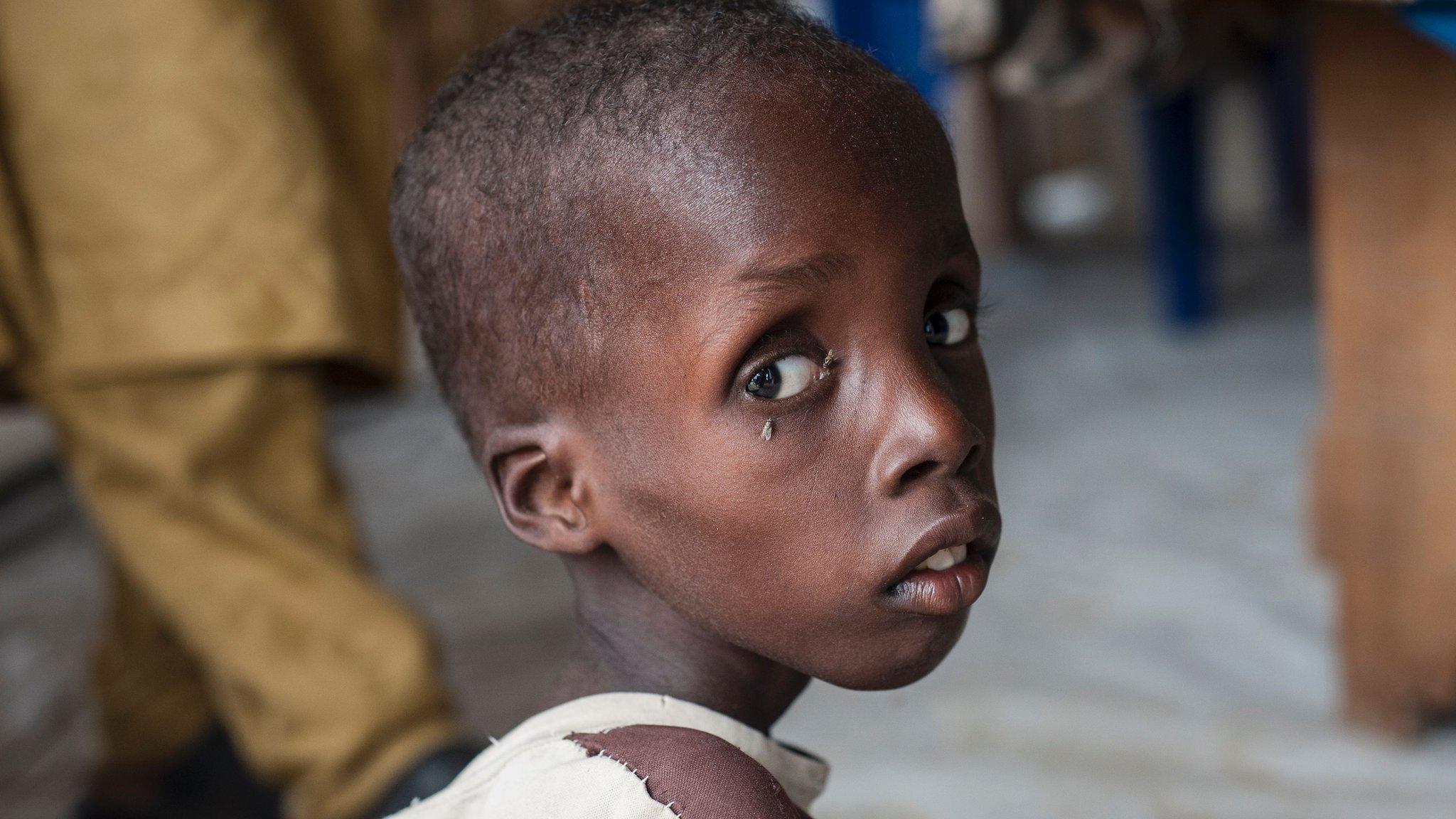
- Published28 July 2023
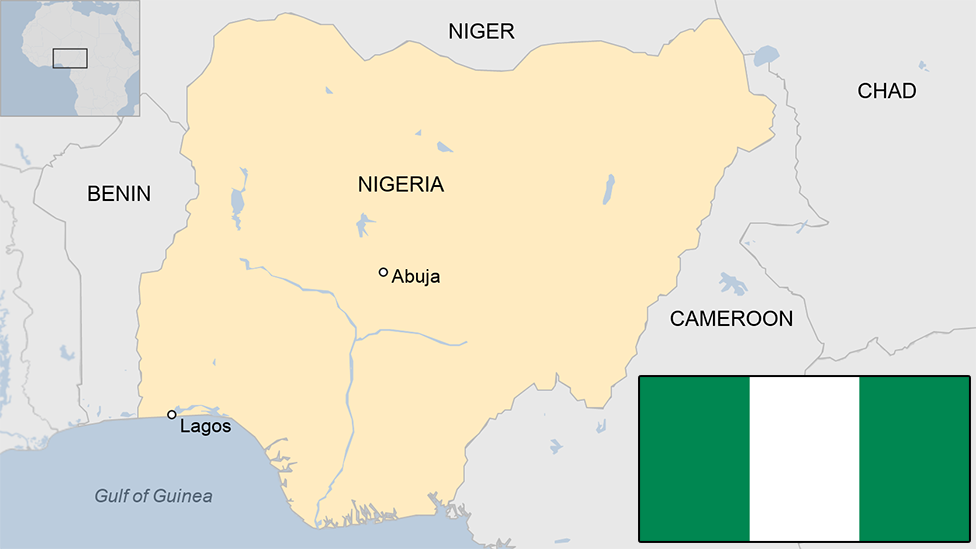
- Published24 July 2022
